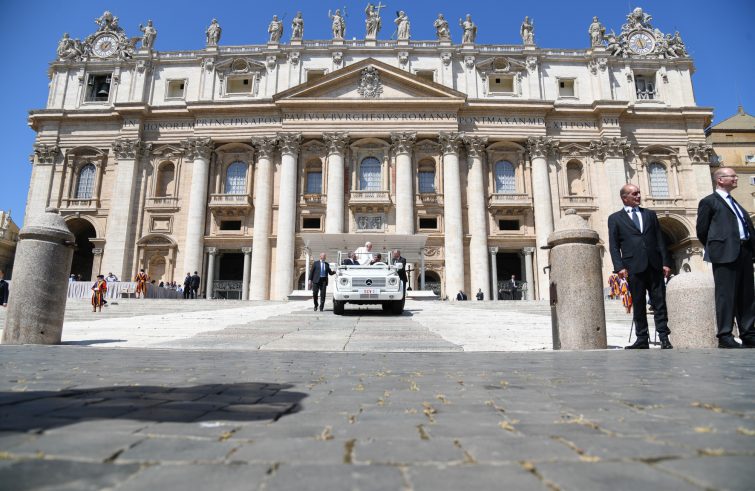
The parable of Job, a focus on the value of the elderly, a warning against a “moralistic religiosity of precepts.” A common thread unites these themes in the catechesis delivered this morning by Pope Francis at his general audience in St. Peter’s Square. In the Italian-language address, the pontiff, continuing the cycle of catechesis on old age, focused his reflection on the theme, “Job. The trial of faith, the blessing of waiting” (Reading: Job 42:1-6,12,16). “in the concluding passage of the book, when God finally takes the floor, Job is praised because he understood the mystery of God’s tenderness hidden behind his silence.,” the Pontiff noted. “God rebukes Job’s friends who presumed they knew everything, to know about God and about suffering, and, having come to comfort Job, ended up judging him with their preconceived paradigms. In Francis’ words a condemnation of “this hypocritical and presumptuous religiosity.”
When protest is prayer. The Pope’s attention focused on one particular aspect: “the Lord says Job spoke well, even when he was angry, and even angry at God, because he refused to accept that God was a “Persecutor”.” “And as a reward, God gives back to Job double of all his possessions, after asking him to pray for those bad friends of his.” Next, the focus shifts on the “the turning point in the conversion of faith that comes right at the height of Job’s venting” Which the Pope interpreted with these words, “My God, I know You are not a Persecutor. My God will come and do me justice.” From the book of Job to everyday reality, the Pope stressed that that parable “dramatically represents in an exemplary way what truly happens in life.” “that really heavy trials fall on a person, on a family, on a people, disproportionate trials in comparison to human lowliness and frailty. It often happens in life that “when it rains it pours”, as the saying goes. And some people are overcome by an accumulation of evil that truly seems excessive and unjust.” The reference is to “parents of children with serious disabilities, or those who live with a permanent illness, or those who assist a member of their family” “These situations are often aggravated by the scarcity of economic resources.” The focus shifts next on “certain junctures in history.” “the accumulation of burdens gives the impression that they were given a group appointment. This is what has happened in these years with the Covid-19 pandemic, and is happening now with the war in Ukraine.”
There is kind of right that victims have to protest vis-à-vis the mystery of iniquity, a right that God grants to everyone, that indeed, He himself, inspires,
Recalling his dialogues with the faithful, the Pope reiterated that “protesting is a way to pray when it is done like that.” “When children, when young people object against their parents, it is a way of attracting their attention and of asking that they take care of them. If you have some wound in your heart, some pain, and you want to object, object even to God. God will listen to you. God is a Father. God is not afraid of our prayer of protest, no! God understands.”
A certainty emerges from Francis’ words: “Prayer should be like this: spontaneous, like that of a child with his father, who say everything that comes out of his mouth because he knows his father understands him. In the first moment of the drama, God’s “silence” signifies this. God does not shy away from the confrontation, but, from the beginning, allows Job to give vent to his protest, and God listens. At times, perhaps we need to learn this respect and tenderness from God.” And he warns, “God does not like that encyclopedia – let’s call it this – of explanations, of reflections that Job’s friends do. These are things that come off the tip of their tongues which are not right – that type of religiosity that explains everything, but the heart remains cold. God does not like this. He likes Job’s protest and silence more.”
The value of the elderly against evil. The Pope’s attention then shifted to Job’s “profession of faith” with its “incessant appeal to God, to a supreme justice”: “This testimony is particularly believable if it is picked up in old age, in its progressive frailty and loss,” Francis noted. “Those who are old have witnessed so many of these experiences in life! And they have also seen the inconsistency of human promises. Lawyers, scientists, even men of religion, who confuse the persecutor with the victim, insinuating that they are fully responsible for their own suffering.” Finally, the Pope encourages to follow the “old people” who “who find the path of this testimony, who turn their resentment for their loss into a tenacity for awaiting God’s promises”: “these older people are an irreplaceable garrison for the community regarding the excesses of evil.”










